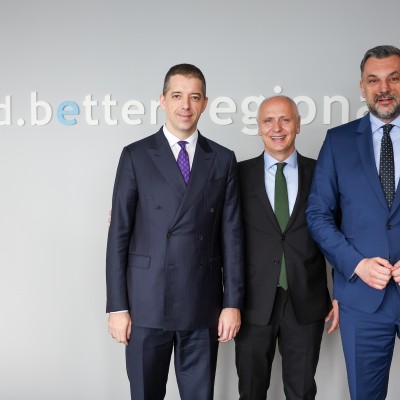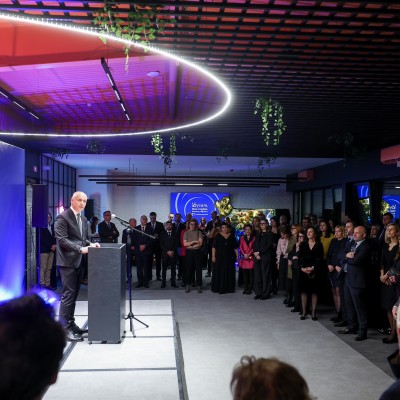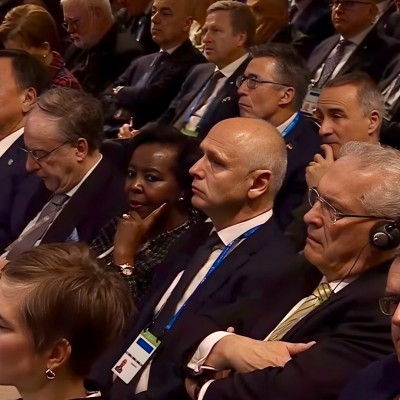RCC hosts lecture ‘Global Economic Crisis: Implications and the Way Out, for Turkey, Bosnia and Herzegovina and the Western Balkans'
20 October 2009

Participant of the panel lecture on global economic crisis, that took place in RCC premises, Sarajevo, 20 October 2009. (Photo RCC /Željko Smola)
A panel lecture Global Economic Crisis: Implications and the Way Out for Turkey, Bosnia and Herzegovina and the Western Balkans was organized in Sarajevo today by the Regional Cooperation Council (RCC) Secretariat, the Economic Policy Research Foundation of Turkey (TEPAV) and the Faculty of Economics of the University of Sarajevo.
The event brought together lecturers from Turkey and Bosnia and Herzegovina, as well representatives of government institutions, public officials, business community, academia, diplomatic community, and civil society, who addressed measures to counter the effects of the global economic and financial crisis on the region of South East Europe.
The pannelists discussed the possibilities for the economic crisis to transform into global depression; its implications on politics and business; issues that economists and politicians should know about the crisis; the global crisis and Turkey; influence of the crisis on Bosnia and Herzegovina; as well as the global economic crisis and the Western Balkans.
The participants were greeted by Hido Biščević, RCC Secretary General, and Veljko Trivun, Dean of the Faculty of Economics, University of Sarajevo.
The pannelists included Fatih Özatay, Director of the TEPAV Economic Policy Research Institute; Besim Ćulahović, Director of the Centre for International Projects at the Faculty of Economics, University of Sarajevo; Süreyya Serdengeçti, TEPAV Stability Institute Director and Former Governor of the Central Bank of Turkey; Anto Domazet, Director of the Sarajevo Institute of Economics; and Erhan Türbedar, Coordinator of the Programme for South East Europe, TEPAV.
The panelists' presentations are available as follows:



